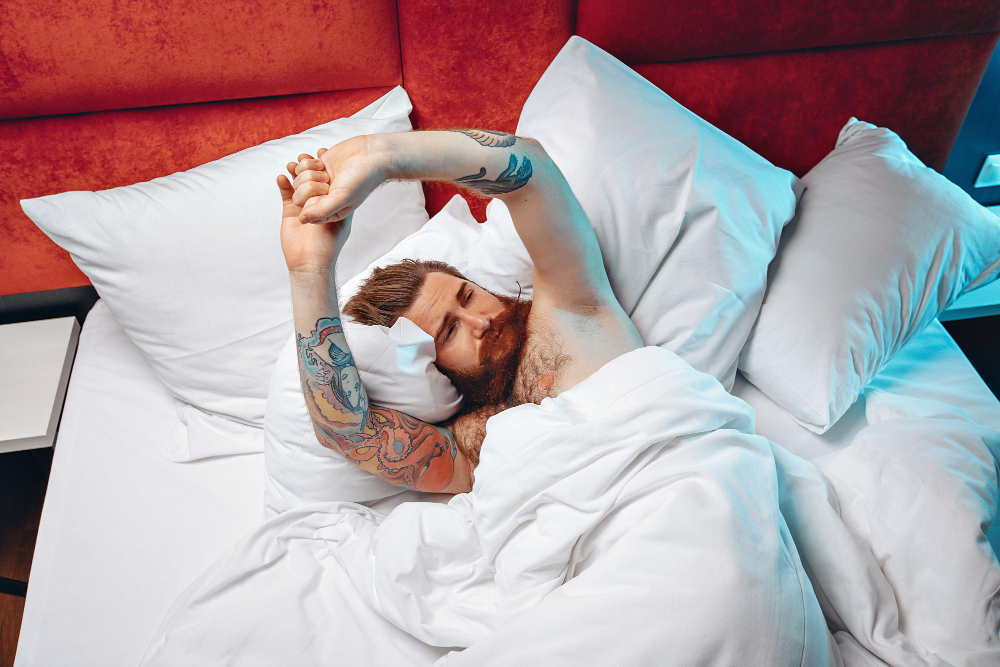If untreated, it may lead to other health problems. Some people have conditions that prevent them from getting enough quality sleep, no matter how hard they try. Not getting enough quality sleep regularly raises the risk of many diseases and disorders.
Keep a sleep diary [PDF – 53 KB]for a week and share it with your doctor. A doctor can suggest different sleep routines or medicines to treat sleep disorders. Talk with a doctor before trying over-the-counter sleep medicine. Your body sets your “biological clock” according to the pattern of daylight where you live.
If you’re having trouble sleeping, try meditation, either on your own or by downloading an app. You can learn more about meditation from the Well Meditation Guide. Then there’s the rest of us, who rely on alarm clocks. Do you have problems falling asleep or staying asleep? According to the National Institutes of Health , about 1 in 3 American Adults do not get healthy amounts of sleep.
The results of a small 2013 study suggest that consuming caffeine up to 6 hours before bedtime can negatively affect a person’s quality of sleep. Drinking too much liquid before bed can affect sleep duration and quality. When people drink too many fluids, this can cause them to wake up several times during the night to urinate. Eating large or overly spicy meals in the hours before bed may cause indigestion that disrupts a person’s sleep. People should generally try to avoid eating heavy meals a couple of hours before bedtime.
.jpeg)
Help yourself by setting aside specific times during the day for checking your phone and social media and, as much as possible, try to focus on one task at a time. You’ll be better able to calm your mind at bedtime. In each category, you can find specific actions that you can take to make it easier to fall asleep, stay asleep, and wake up well-rested. For many people, trying to implement all these strategies can be overwhelming. But remember that it’s not all-or-nothing; you can start with small changes and work your way up toward healthier sleep habits, also known as sleep hygiene.
Yes, sleep helps you clean up the cerebellum, polish the parietal and flush the frontal lobe. Sleep cleans out the toxic junk in your brain. In mouse studies, researchers found that during sleep, the space between brain cells gets bigger, allowing the brain to flush out toxins. While more study is needed, the research suggests that not sleeping can allow toxins to accumulate and may be linked with brain diseases like Parkinson’s and Alzheimer’s. Put aside any work, touchy discussions, or complicated decisions 2 to 3 hours before bed.
Sign up for free, and stay up to date on research advancements, health tips and current health topics, like COVID-19, plus expertise on managing health. You might not be able to control the factors that interfere with your sleep. However, you can adopt habits that encourage better sleep. Brain tumor, breast cancer, colon cancer, congenital heart disease, heart arrhythmia. Change the lives of cancer patients by giving your time and talent.
Residual stress, worry, and anger from your day can make it very difficult to sleep well. Taking steps to manage your overall stress levels and learning how to curb the worry habit can make it easier to unwind at night. People who exercise regularly sleep better at night and feel less sleepy during the day. Regular exercise also improves the symptoms of insomnia and sleep apnea and increases the amount of time you spend in the deep, restorative stages of sleep.
But even light exercise—such as walking for just 10 minutes a day—improves sleep quality. Sleeping well directly affects your mental and physical health. Fall short and it can take a serious toll on your daytime energy, productivity, emotional balance, and even your weight. Yet many of us regularly toss and turn at night, struggling to get the sleep we need. Poor pre-bed habits are a major contributor to insomnia and other sleep problems.





















